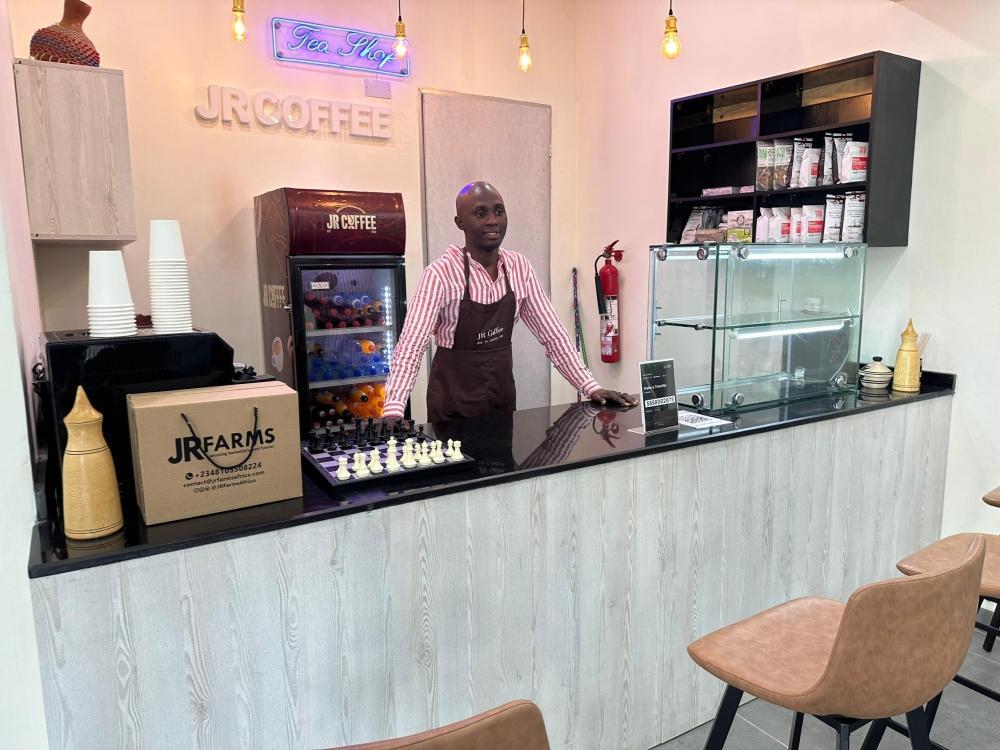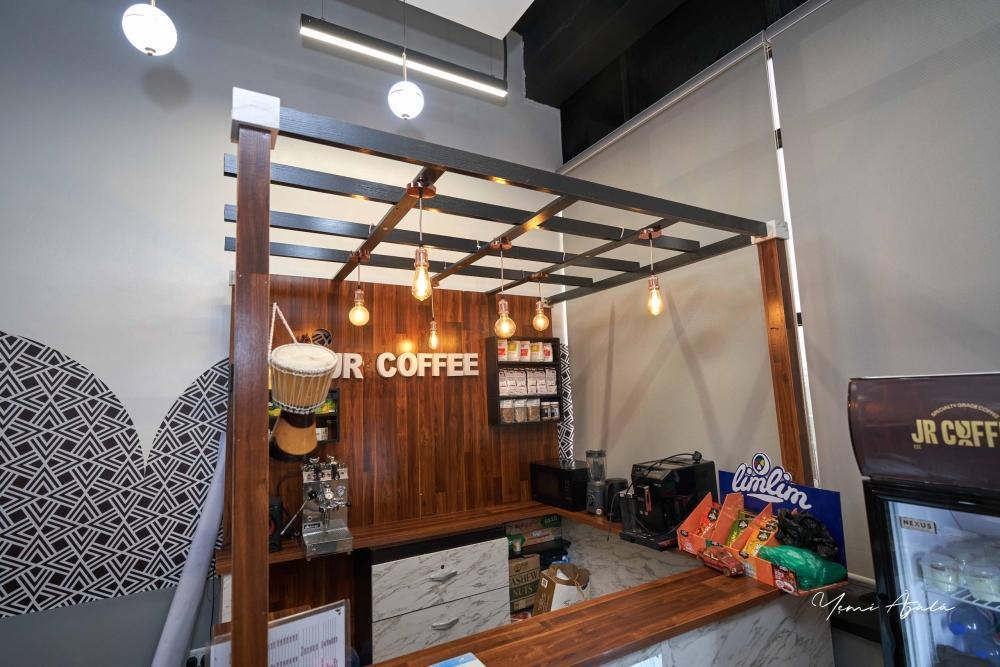Africa-Press – Rwanda. Nigerian agribusinessman Rotimi Olawale runs 16 coffee shops in Abuja, Lagos, and in Lusaka, Zambia, all exclusively serving Rwandan coffee. This is in addition to supplying major hotels and prominent restaurant chains in his country.
The 36-year-old founder of the family-run JR Farms first visited Rwanda in 2018 to explore business opportunities in the country he describes as “a model for Africa.”
During the visit, he discovered the potential for partnerships in the coffee industry, particularly in exporting Rwanda’s high-quality coffee to Nigeria.
He completed his first coffee export in 2018, and upon its arrival in Nigeria, he took it to various spots for tasting. The response was so positive he concluded that the West African powerhouse had a huge market potential for Rwandan coffee.
“We just went around, dropping samples and they tested it at breakfast,” Olawale told The New Times in an interview.
Olawale Rotimi Opeyemi, founder and CEO of JR Farms.
“At Sheraton, for example, the chef called us and said, ‘Where have you guys been? This is the kind of coffee our customers like,’” he recalls.
JR Farms has a partnership with Rwanda Farmers Coffee Company, and as part of this, Olawale exports roasted coffee beans, a deliberate choice that is meant to retain jobs in Rwanda by focusing on exporting a finished product rather than raw materials.
For Olawale, the quality of Rwandan coffee is its greatest selling advantage. He also exports it to Ivory Coast and Ghana by road from Lagos.
“Of course, it’s not as cheap as other coffee, but this is our trademark. This is what we’re most proud of,” he says.
Inside one of the JR coffee shops that sell Rwandan coffee in West Africa.
Today, his coffee shops in Nigeria serve over 7,500 customers daily. With operations going well locally, expansion into Europe is already underway, with France being Olawale’s first target.
“We are working on opening our coffee shop there by August 25. It will also serve Rwandan coffee. We have already done two tasting events in France,” he says.
In France, besides the exports, JR Farms has also engaged with audiences through different platforms including the Ambition Africa event held in November 2024. They have also reached a global audience at the Salon International de l’Agriculture in February 2025.
Olawale also says they have served coffee to a global audience at the Nigeria Business Forum in Paris in April 2025, and currently supply hotels, restaurants, and coffee shops in Paris, as well as in the south of France.
Do Nigerians drink coffee?
Talking about the coffee culture in Nigeria, Olawale insists that coffee is already a popular drink in the west African country, where brands like Nescafe have had a market for decades.
“It’s not true that we only take tea because we were colonised by the British,” he said. “For example, I grew up in Nigeria taking Nescafe. I’ve always known Nescafe. I’m almost 40 years,” he says.
From Rwanda, his company exports about 1.6 tonnes of coffee in a month. “That’s a lot of coffee,” he says.
Ease of logistics in Rwanda
The ease of doing business, from transport to taxes, is favourable in Rwanda, he observes.
“They take the goods to the airport, and you pay what you are meant to pay. You can track it online, see if it’s been lifted, where it is, and when it has passed customs and is in the warehouse,” he explains.
Rwanda projects to generate $85 million in coffee exports in the 2024/2025 fiscal year, and $115.5 million by 2029, according to the Ministry of Agriculture.
The goal will be pursued through interventions including increasing coffee exports from 16,400 tonnes in 2023/2024 to 32,000 tonnes by 2028/2029.
Under the ministry’s fifth Strategic Plan for Agriculture Transformation (PSTA 5), PSTA 5, Rwanda also plans to expand the area under coffee cultivation from 42,229 hectares in 2023 to 44,729 hectares in 2028/2029.
For More News And Analysis About Rwanda Follow Africa-Press








